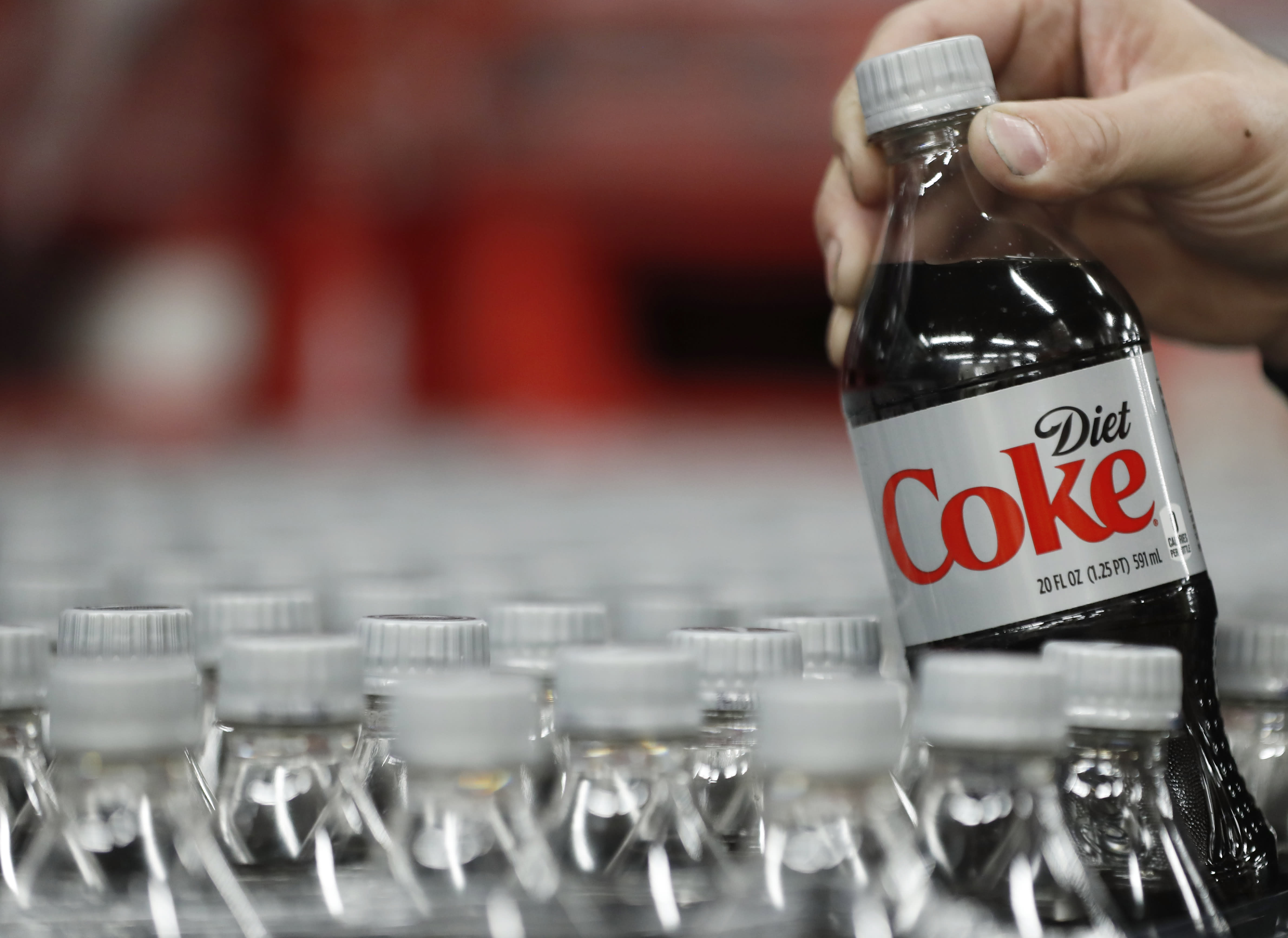A bottle of Diet Coke is pulled for a quality control test at a Coco-Cola bottling plant in Salt Lake City, Utah.
George Frey | Getty Images
Check out the companies making headlines in midday trading.
Coca-Cola — Coca-Cola gained 2.5% after the beverage giant gave an optimistic view about its future. The company said it expects demand to improve moving forward after states eased quarantine and lockdown measures. For the second quarter, however, Coca-Cola reported a 33% year-over-year drop.
IBM — IBM shares rose 1% on the back of better-than-expected quarterly results. The company posted an adjusted profit of $2.18 per share on revenue of $18.12 billion. Analysts polled by Refinitiv expected earnings of $2.07 per share on overall sales of $17.72 billion. IBM also said gross margins for three of its five main units increased.
Devon Energy — Shares of the independent oil and natural gas company jumped more than 12% after Simmons Energy upgraded the stock to an overweight rating. A jump in oil prices that pushed West Texas Intermediate crude futures to the highest level since March also lifted other names in the sector. Occidental, Apache and Halliburton all gained more than 10%, while Exxon and Chevron each traded 6% higher.
Wells Fargo — Shares of the bank climbed 6.3% after it announced Mike Santomassimo would become chief financial officer, replacing the retiring John Shrewsberry. Santomassimo was previously CFO at Bank of New York Mellon. Shrewsberry was CFO for six years, predating new CEO Charlie Scharf.
Amazon — Amazon stock fell 2.2% in midday trading after the e-commerce giant confirmed on Tuesday that it will delay its biggest shopping event of the year. In a statement, Amazon said it is delaying Prime Day while “ensuring the safety of [its] employees and supporting [its] customers and selling products.” Amazon sent an email to its third-party sellers earlier in the summer to use the week of Oct. 5 as a “placeholder date” for coupons.
UBS — Shares of UBS jumped more than 3% following its better-than-expected second quarter earnings. The Swiss lender reported a net profit of $1.23 billion, topping expectations of $973 million, according to Refinitiv. The profit was, however, an 11% drop year-over-year.
Tapestry — Shares of Tapestry jumped 3.5% after Jide Zeitlin resigned as the luxury retailer’s chairman and CEO after the company opened a probe into his personal behavior. Chief Financial Officer Joanne Crevoiserat, a former Abercrombie & Fitch executive, has been appointed as interim CEO of Tapestry. The company also said its fiscal fourth-quarter results have exceeded internal expectations with inventory levels falling from a year earlier.
Lockheed Martin — Shares of the industrial name gained more than 2% after the company earned $5.79 per share in the second quarter, which was 7 cents ahead of Street estimates compiled by Refinitiv. The company also beat revenue expectations, and raised its full-year forecast.
Philip Morris — Shares of the tobacco company rose nearly 5% after beating on the top and bottom lines of its quarterly earnings. Philip Morris earned $1.29 per share on revenue of $6.65 billion. Wall Street was estimating earnings of $1.10 per share on revenue of $6.50 billion, according to Refinitiv.
Hibbett Sports — Shares of the athletic apparel and footwear retailer soared more than 17% after the company said its second-quarter comparable sales were likely to be up by more than 70%.
— With reporting from CNBC’s Yun Li, Jesse Pound, Fred Imbert, Yun Li and Tom Franck.
